The historic theme park trying to secure a future
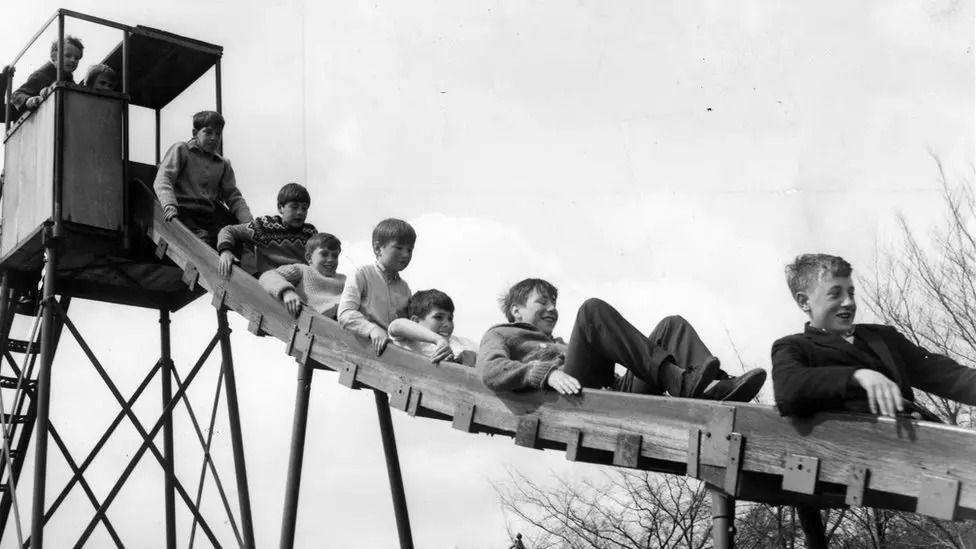
The park has been open to the public since August 1921
- Published
The owners of one of the UK's oldest theme parks say it could "cease to exist in its current form" without extra funding.
An appeal has been launched to save Wicksteed Park, Northamptonshire, founded in 1921.
BBC News looks at the history of this historic Kettering venue and why changes could be on the way.
What is Wicksteed Park and why is it so special?
The park in Kettering was founded in 1921 by Charles Wicksteed and has created fond memories for generations of people from the surrounding area.
It offers about 25 rides within 281 acres (114 hectares) of parkland and enjoys Grade II listed status. It is also the oldest theme park on the UK mainland.
The Reverend Richard Coles and the comedian James Acaster are among those who have spoken of their affection for the venue.
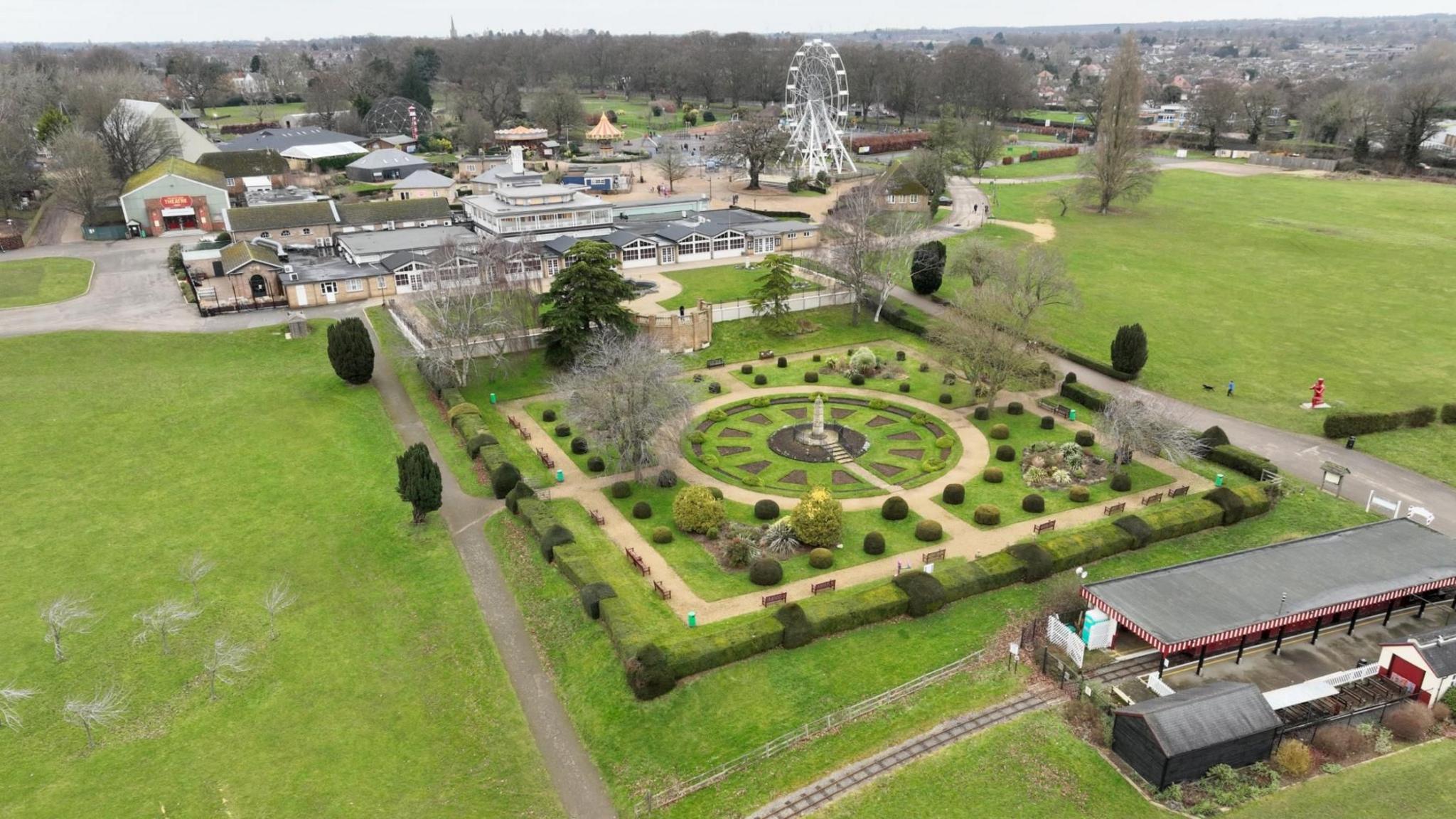
Alongside its rides, the park has gardens, walking trails, a nature reserve and a pavilion, which is used for community events and private functions.
It offers venues for weddings, parties and also hosts Kettering's Parkrun.
The park has also been a centre for theme park innovation.
Its log flume - opened in 1926 - is said to be one of the oldest water-based rides in the world.
What changes is Wicksteed Park facing?
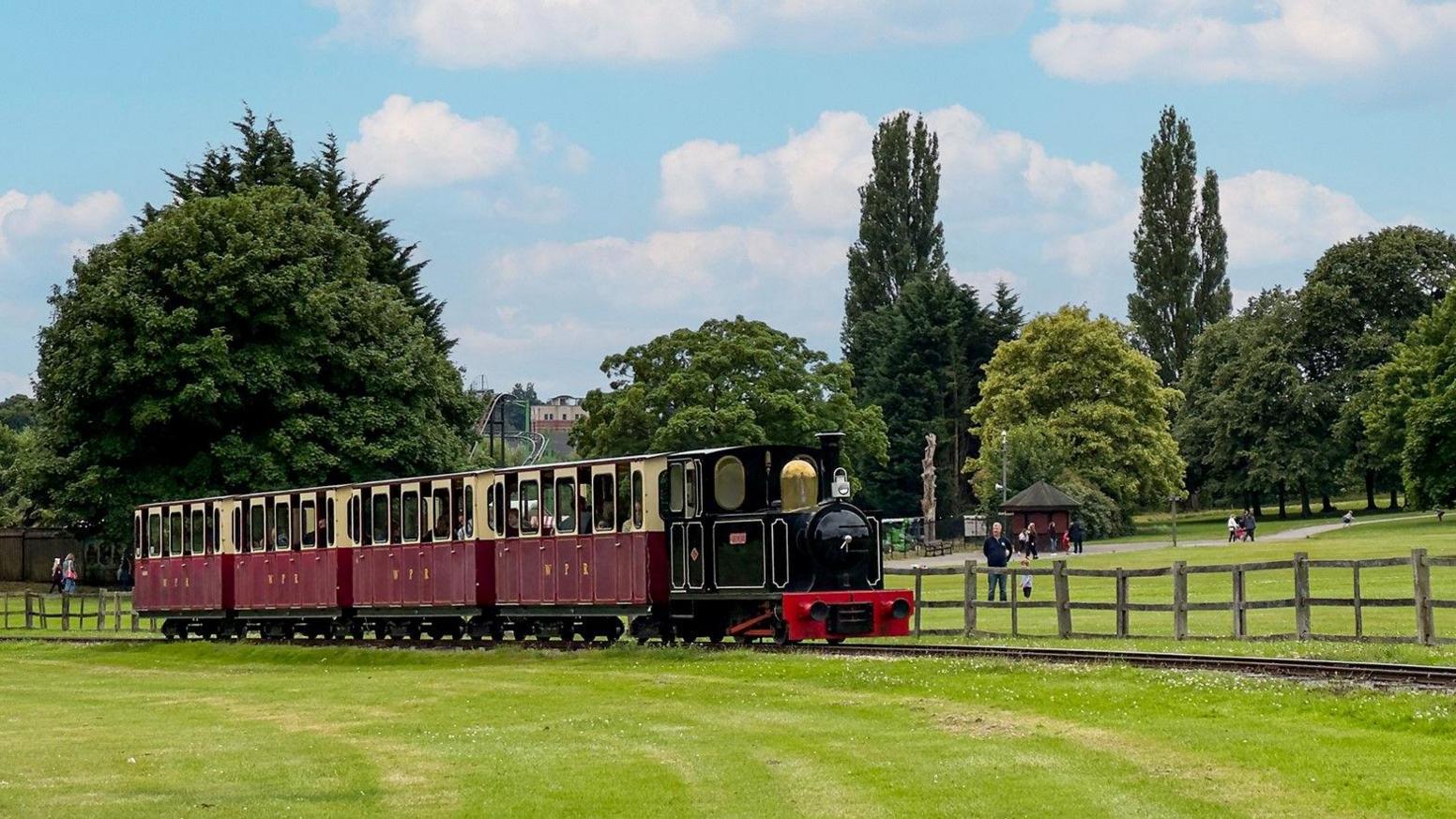
Wicksteed Park railway opened in 1931 and the park says nearly 20 million people have travelled on it since
Visitors currently enjoy free access to the park, but must pay for parking and for individual rides.
But The Wicksteed Charitable Trust, which owns the park, has warned free admission, available for more than a century, may have to be restricted.
It is not the first threat to the park in its recent history.
National Lottery and Cultural Recovery funding was needed to help the park recover from losses caused by the Covid shutdown.
But Oliver Wicksteed, chair of the trust, said it needed "that level of support year-on-year in order to safeguard the park's future".
What has the trust said about the possible changes?
Mr Wicksteed said the current Labour government's first budget "placed significant additional cost pressures on the park" through increases in the minimum wage and employer's National Insurance contributions.
"Like many heritage organisations, we're finding that the cost of keeping the park open has increased massively," he said.
"The cost-of-living crisis is affecting us, of course, but our visitors, too. Our main utilities have gone up; minimum wage is going up another 13%.
"We want everyone to earn good money, but when you have the majority of your visitors using free access, we can't pass those costs on to anyone else.
"We've now got additional tax on our charity through the recent budget increases and unpredictable weather patterns.
"All of this comes after the pandemic, which weakened lots of organisations. It's beginning to weaken what we can do for the environment and the community.
"We've got to look at the model to make sure we can preserve something that is so precious."
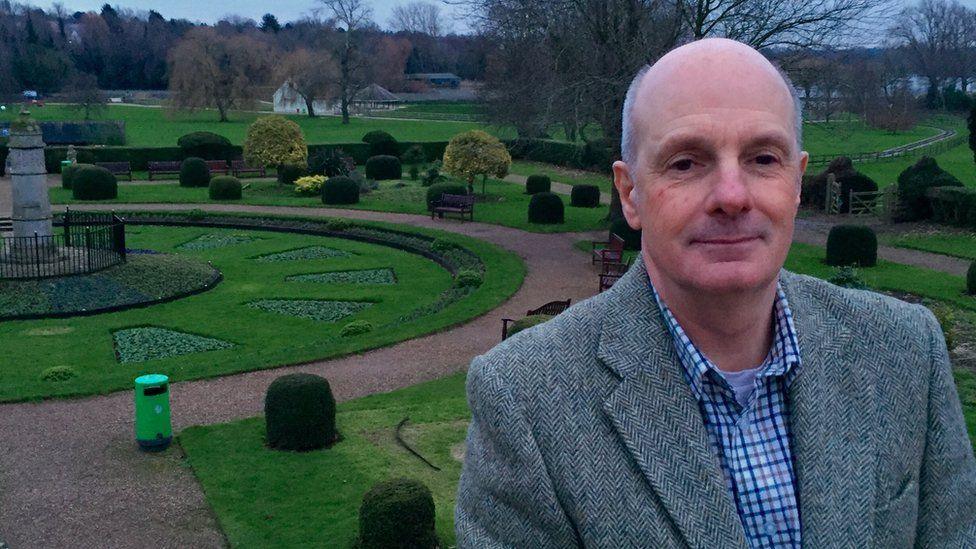
Oliver Wicksteed said "a great deal of money" was needed to keep the park open to the public
Mr Wicksteed said an estimated 800,000 to a million visits were made to the park each year, with "in excess of 600,000" of those from people not paying for rides and attractions.
"We are a charity, but Wicksteed does not get any support from council tax, local authority and that kind of thing. It's becoming more and more difficult for us," he said.
The trust said it had launched an online survey, external to the public to help inform its next steps.
What is being done to keep the park in its current form?
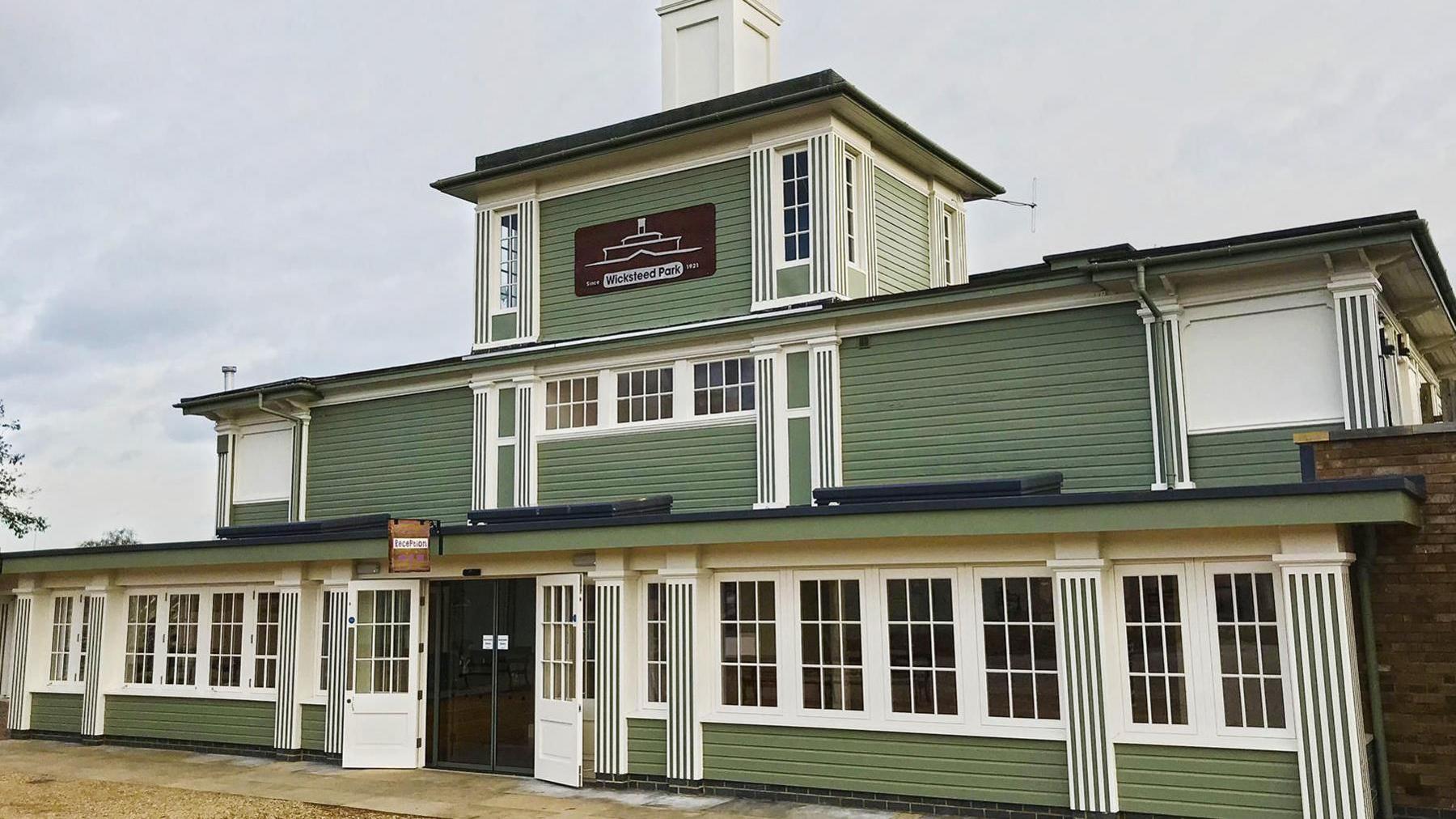
Wicksteed Park pavilion opened in 1921 and is used for community events and private functions
A lottery grant of £250,000 will be used to create a full-time fundraising team.
The trust has appealed to individuals, community organisations and businesses to "support them in keeping Charles Wicksteed's legacy alive".
Part of the grant will be used to fund a questionnaire asking visitors for their views of the park.

Wicksteed Park has a number of rides, including the Dinosaur Valley rollercoaster
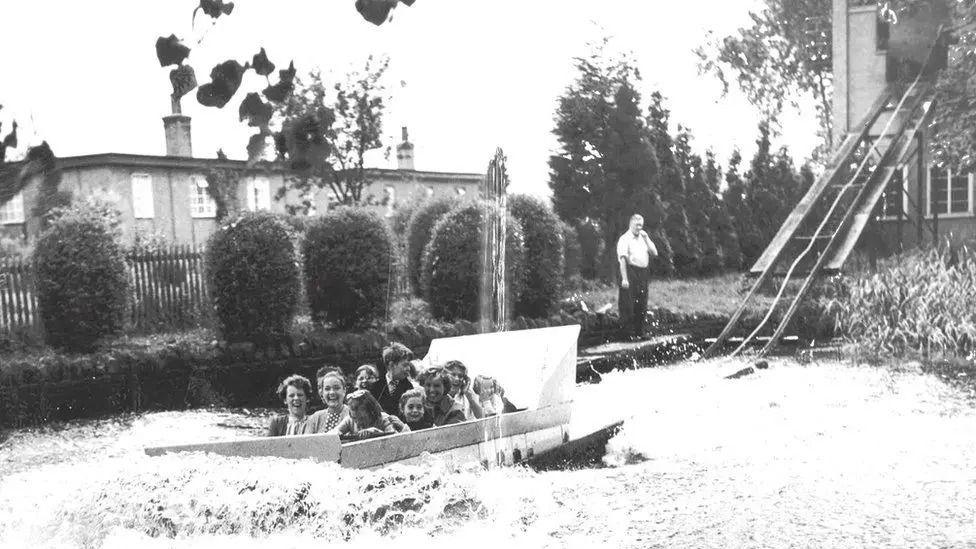
Wicksteed Park says its water chute is the oldest in Britain
Get in touch
Do you have a story suggestion for Northamptonshire?
Follow Northamptonshire news on BBC Sounds, Facebook, external, Instagram, external and X, external.
Related topics
Related to this story
- Published29 January

- Published24 July 2024
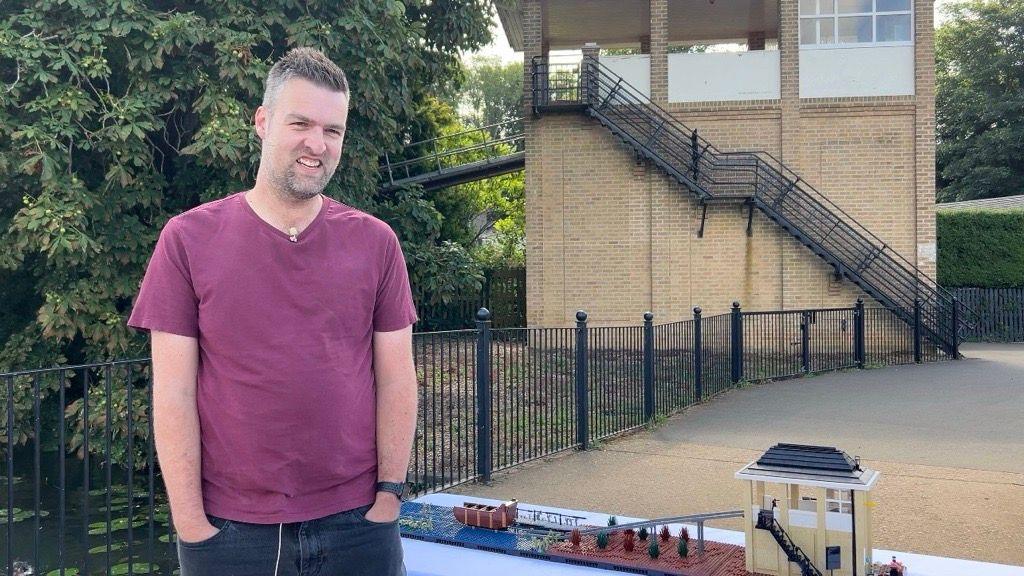
- Published26 June 2020
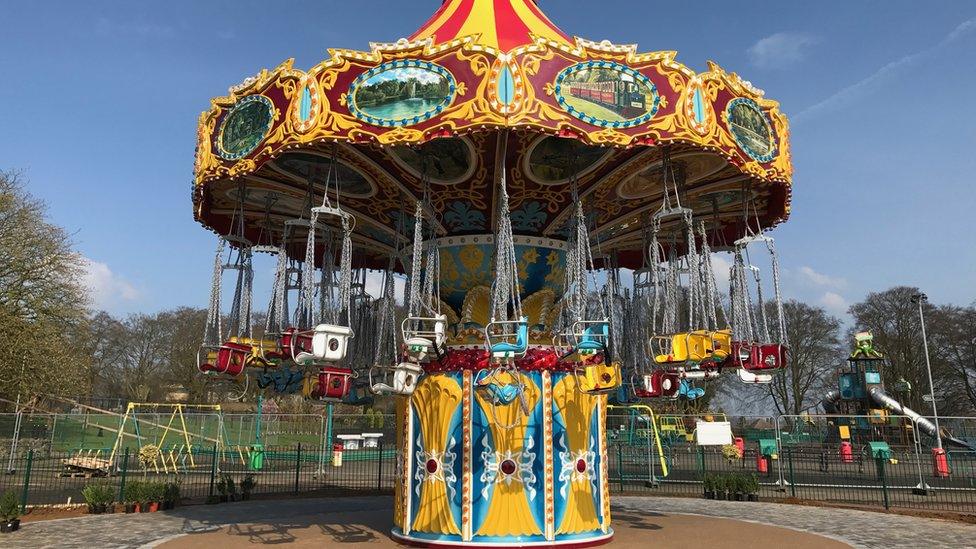
- Published18 June 2020
